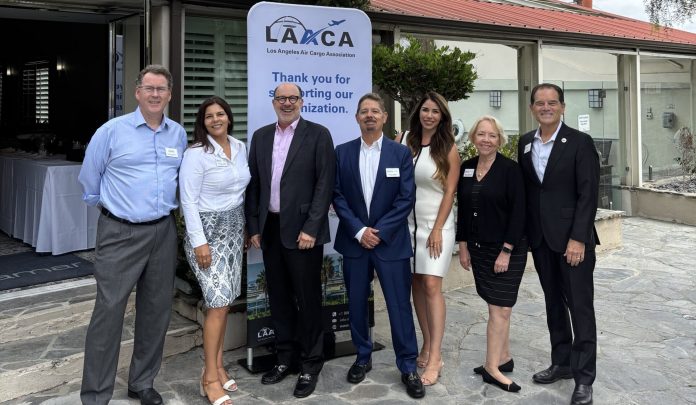Freight forwarders are playing a critical role in maintaining stability for shippers as tariffs, regulatory reform, and rising compliance demands intensify supply chain uncertainty, according to Brandon Fried, Executive Director of the Airforwarders Association (AfA).
Speaking to the Los Angeles Air Cargo Association, Fried emphasized that AfA members are helping customers navigate shifting trade flows and mounting costs by keeping freight moving and providing practical solutions.
He cited mounting pressures, including cybersecurity vulnerabilities exposed by the CrowdStrike outage, an increase in extreme weather events, and ongoing geopolitical instability in Ukraine, the Red Sea, and the Taiwan Strait.
“Forwarders are the stabilizing force when disruption hits,” Fried said.
“We were tested by shocks in 2024, and we adapted. We are ready to protect shippers and keep goods moving through whatever comes next.”
Fried added that infrastructure constraints, such as aging airport warehouses, truck congestion, and outdated facilities, continue to hold the industry back. He stressed the importance of federal investment in cargo infrastructure to support long-term resilience.
New Opportunities Emerging
Despite challenges, forwarders are capitalizing on growth sectors. Reshoring and nearshoring are shifting flows from China toward Southeast Asia and Mexico, while defense logistics and pharmaceuticals remain steady. High-value semiconductors are creating new growth corridors.
David Gibson, President of the Los Angeles Air Cargo Association, said forwarders are proving their value as supply chains face new tariff and regulatory challenges:
“Los Angeles is at the center of global trade, and our community depends on forwarders to keep supply chains resilient. Their ability to find solutions in the face of uncertainty is what keeps cargo moving through LAX and beyond.”
Technology and Sustainability in Focus
Fried highlighted how forwarders are applying Artificial Intelligence to pricing, customs automation, and fraud detection, while automation and paperless processes are driving efficiency.
He also underscored the challenge of sustainability, with demand for greener supply chains rising faster than the available supply of Sustainable Aviation Fuel (SAF).
“Policy shifts and regulation will continue, but forwarders are the partners who bring resilience, compliance, and solutions,” Fried concluded.
“Our members are essential to maintaining confidence in global trade.”


